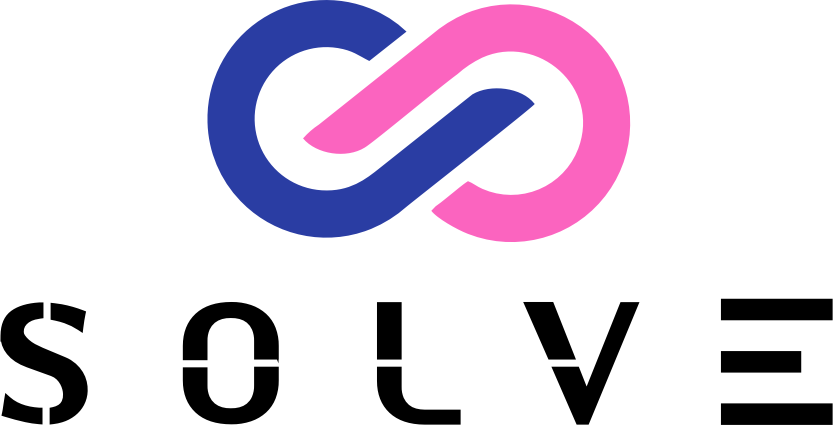- By Vanshika Choudhary
- April 19, 2025
Truly a digital marketplace, the UAE transforms innovation into demand, filling in the blank with 2023 market segments like toys, fashion, and electronics, which actually changed consumer behavior, but approached niches like eco-friendly beauty and smart home tech very much at home. Well, what lets the bright side of the journey of each category have a peek into its trends, challenges, and decisions made throughout the year?
-
Toys, Hobbies, and DIY: Where Pleasure Meets Purpose
Market domination of 29 percent has been more than just fun; it was a cultural shift toward skill-building. STEM-based kits and Arabic-language puzzles are now being purchased by parents to achieve some national goals as reflected in the education objectives, such as the AI-driven school curriculum in the UAE. Front-runners like ToyRentals.ae are much into the dissuasion of the ownership concept, providing toys at a fraction of the price for a subscription model access to their range of premium toys. DIY craft sales experienced a revival as influencers shared ideas on how to personalize through home decor projects. Retro board games were given a new lease with modern twists, merging traditional and contemporary.
-
Fashion and Apparel: The Evolutionary Digital Runways
Fashion was 27% of the market, and hyper-personalization fueled it. Weather, occasion, and purchase history were among the criteria used by AI stylists in compiling outfits on platforms like Namshi. Resale of luxury goods is gaining ground: the millennials’ environmental consciousness contributes to the boom. Latest figures from The Luxury Closet state that secondhand designer handbags have been selling at an annual increase of 40%. It seems that record-breaking sales were witnessed during Ramadan for modest collections ranging from abayas to pockets for cultural relevance to technology. And social commerce was in. Views on TikTok’s #UAEFashionWeek hashtag reached 12 million, with many of the viral trends selling out immediately.
-
Consumer Electronics: Beyond Gadgets. Towards Ecosystems
Electronics went beyond standalone products to interconnected ecosystems; demand for Google Nest has eclipsed that of past appliances, with a person speaking commands as they automated their ACs and security systems. Noon’s “Tech Tuesdays” became the talk of the town as it featured flash sales on devices, such as foldables, that saw a 200% spike in demand. Refurbishment of electronics has really come up as an area in which certified sellers are offering warranties to an increasingly budget-concerned Gen Z consumer. On the other front, sales of gaming merchandise went through the roof given the UAE’s robust aspirations in esports and events such as the Dubai Esports Festival.
-
Beauty and Personal Care: The Clean Beauty Revolution
The 13.2% market share growth comes from a mix of luxury and ethical considerations. Halal-certified cosmetics brands like PHB Ethical Beauty have experienced triple-digit growth rates, catering to values-driven customers. In augmented reality, Sephora’s app introduced virtual try-ons to reduce returns and enhance trust. Men’s grooming has emerged from nowhere, with beard care kits and oud fragrances like Ahmad Lootah’s gaining cult status. The subscription box GlamBox customizes products to local preferences, such as Ramadan-themed skincare sets made with date seed extracts.
-
Grocery and Food Delivery: The Convenience Economy
Not just some fancified corpse of a 2022 fad, online grocery shopping simply became a staple of life. Kibsons’ “Farm-to-Fridge” service had organic produce delivered within hours, while Carrefour’s AI system devised what shoppers should buy based on past purchases. Kitopi’s cloud kitchens were firing from the hip with hyper-local menus, serving shawarma bowls and keto meals for niche diets. Then came “15-minute delivery” apps like YallaMarket that raised the bar and made even quick snacks feel like an insult to instant gratification. Ramadan meal kits prepped for iftar are quintessential examples of cultural nuances winning the loyalty.
Market Dynamics: Invisible Forces Behind Trends
Cross-Border Shopping: UAE shoppers did not hold back in their purchases of international brands, mostly known for Japanese skincare products and German engineering tools, through platforms like Amazon Global for tax-free shipping. The ease of overseas purchases was aided by trust in secure payment gateways such as PayPal and Apple Pay.
Payment Preferences: COD remained the most popular yet gained competition from digital wallets, with 60% of millennials using apps such as Beam to split payments. Luxury stores such as Tabby collaborated with BNPL, allowing shoppers to splurge guilt-free with installments.
Logistics Innovations: For the last-mile delivery, drones and autonomous vehicles were tried out in Dubai’s Silicon Oasis, while the locker networks at the Metro stations resolved address problems. Startups like Fetchr are using geolocation tech in pinpointing customers, therefore decreasing the instances of failed deliveries. Check out our latest blog post on what is e-commerce how to build your online business with e-commerce
Platform Wars: How Amazon and Noon Redefined Competition
In terms of convenience, Amazon.ae utilized Prime’s universal standing to provide exclusive access to U.S.-sponsored Black Friday deals, whereas Noon matched back with local campaigns such as “White Friday” that enjoyed Arabic celebrity endorsements. Amazon, with the mix of extensive inventory and Alexa integration, stood ahead as Noon invested in content creation and streaming Arabic shows to engage its users. The two giants would race to onboard SMEs, stumbling into providing logistics to the sellers and thus turning the UAE into a hub for regional e-commerce exports.
The Road Ahead: What 2024 Holds
A Reworking of Fashion by AI
Artificial intelligence is changing the future of fashion in the e-commerce landscape of the UAE. Virtual influencers and digital-only clothing collections are reshaping how brands traditionally relate to shoppers. I It renders fashion more interactive and somewhat abstracts the dichotomies in a game or a retail sphere, as users can acquire a retail-exclusive digital outfit purchase for their avatars in games or metaverses.
Green tech
Focusing on sustainability, the latest entrant in electronics in the UAE is solar-powered chargers, along with biodegradable phone cases, product types that have become popular. This is so because it has to do with the country’s impressive Net Zero 2050 targets out of the broader context of government policy and the demand of the consumers for greener options.
Entry into the Metaverse
Voice commerce is about to grow quite a lot in the UAE as Arabic-language voice assistants become smoother and easier to access by different people. Older generations and tech-wary users are finding it easier, because of smart speakers and virtual assistants, to shop by voice commands rather than by typing. It removes barriers to digital adoption and offers a new, simple, less complex, and intuitive window for browsing, comparing, and buying without using complex websites and apps.
Entry into the Metaverse
Shoppers can browse through digital storefronts, interact with products in 3D, and earn unique digital assets as rewards for their engagement or purchases. This combination of real and virtual ownership appeals not only to those who like technology but also leaves room for a broader scope of innovative marketing and branding possibilities for retailers.
Strategies to Win Retailers
Hyper-Localization
Retail adaptations or variations have caught fire in the UAE, with instances such as date syrup-scented candles during Ramadan or exclusive Dubai Expo-themed merchandise. These brilliant products ring a bell to local culture and tradition, wherein shoppers feel seen and appreciated. By doing so, brands align customers’ inventory and marketing campaigns with the most important regional events and preferences. This way, brands are able to have more emotional ties by encouraging repeat business in a highly competitive market.
Micro-Influencers
Involving nano- and micro-influencers (those with 1,000-10,000 followers) has become one of the most powerful methods for authentic, community-based marketing initiatives. Small groups of influencers capture caring and trust rather than word-of-mouth to bring attention to products.
Gamification
With site visitors being given coins or points when they write reviews, share products, or make repeat purchases, the company has created an exciting challenge for the customer. Shoppers can exchange their prize winnings for discounts, exclusive access, or special perks, turning shopping into a fun-filled interactive activity. This increases customer interaction and retention while also encouraging good customer behavior for both sides—the customer and the brand—for instance, through feedback given or organic word of mouth for products.
Carbon Neutral Logistics
With increased environmental awareness and the growing number of eco-conscious shoppers, UAE retailers are turning to carbon-neutral logistics, for example, creating synergies with local solar farms to make up for delivery emissions. Their value is in attracting the eco-shoppers and being into the national green initiatives. Clear communication about the sustainability efforts would give the brands tough competition, inspire customer loyalty, and add to the wider footprint that the UAE wants to create with its sustainability vision, which would position them responsibly as regional leaders within the fast-growing e-commerce space of the country.
The UAE E-Commerce Playbook: Conclusion
The 2023 e-commerce landscape in the UAE has been a masterclass in adaptability. From toys that teach to groceries that fit your needs, the retailers have thrived by marrying technology, culture, and convenience. Contact us as AI and sustainability change the game; the new mantra is simple: Innovate inclusively, or be irrelevant. With the sector due to double in size by 2028, the UAE is not just riding the digital wave; it is creating it!




